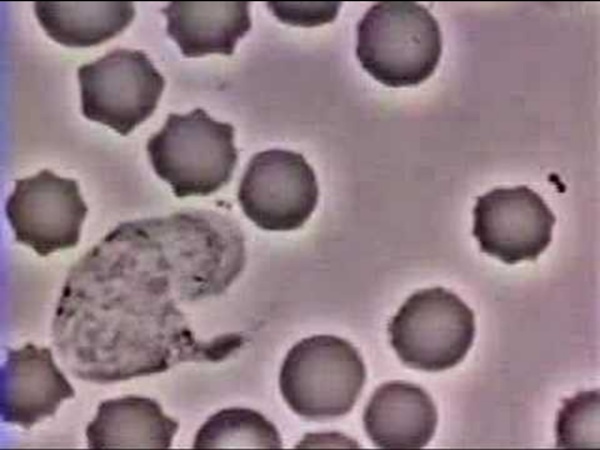White Blood Cell Chases Bacteria

INACTIVATION OF POLIOMYELITIS VIRUS IN VITRO BY CR... [J Exp Med. 1935
Vitamin C As An Antiviral
This article may be reprinted free of charge provided 1) that there is clear attribution to the Orthomolecular Medicine News Service, and 2) that both the OMNS free subscription link and also the OMNS archive link are included. FOR IMMEDIATE RELEASE Orthomolecular Medicine News Service, December 3, 2009 Vitamin C As An Antiviral:It's All About Dose (OMNS, December 3, 2009) One of the most frequent questions from Orthomolecular Medicine News Service readers is, Just how much vitamin C should I take? Our bodies cannot make vitamin C (ascorbate), although most animals can. Each person's need for vitamin C differs because of differences in genetics and individual biochemistry [1,2,3]. Mechanism For Ascorbate Antiviral EffectSeveral mechanisms for vitamin C's antiviral effect are known or suggested from studies [4,8]. Vitamin C is also involved in enhancing several functions of the immune system.
The in Vitro Action of Synthetic Crystalline Vitamin C (Ascorbic Acid) on Herpes Virus
+ Author Affiliations Summary The experimental evidence presented in this paper shows that synthetic vitamin C (ascorbic acid) inactivates “W” virus in vitro. This is a non-specific action and is due to a pH effect since, when the vitamin is added to a virus suspension buffered between pH 5 to 8, it fails to inhibit the virus. These observations apply only to the inactivating effect of ascorbic acid on the virus in test tube mixtures and have no reference to the effect that vitamin C may exert in inhibiting virus infections in the animal body. Footnotes ↵1 This research was supported by a grant from the W. Received June 29, 1936.
Related:
Related:



